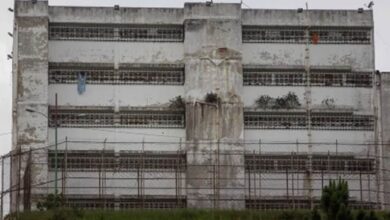Protests in Brazil: a country divided in two by Bolsonaro
Listen this article
After the protests against Bolsonaro for the cuts in education and those in their support, only the panorama of a divided country remains
Leer en español: Manifestaciones en Brasil: un pueblo dividido en dos por Bolsonaro
Jair Bolsonaro has been president of Brazil for five months, and two major mobilizations have already taken place; the interesting thing is that one was against his Government and the other in favor of him. Although the latest polls, made by Pollster XP, on the popularity of the president showed that more people consider their government as bad or terrible than good or excellent -36% against 34%, respectively-, the polarization of the Town seems to be much more significant.
With a president who usually makes racist, homophobic and classist comments, it is clear that his figure causes controversy in the vox populi. The protests were held in the same month, both with massive assistance and practically opposite messages. Here more information about the development of them.
You may be interested: Brazil: increasingly closer to the legal bearing of weapons
Against Bolsonaro for cuts to education
Porto Alegre#TsunamiDaEducação pic.twitter.com/o30qCQgb9t
— Fernando Oliveira (@fernao_berthold) 15 de mayo de 2019
On Wednesday, May 15 thousands of people in several cities of Brazil went out to protest against the student cuts announced by the Minister of Education, Abraham Weintraub. As El País and Infobae report, 30% of the non-compulsory budget of the federal universities would be removed, to which it adds 3000 research scholarships that would lose funding. The above was added to the decree that Bolsonaro had published in March in which it was stipulated that "it froze almost 30,000 million reais (about 6,600 million euros)," as El País reports.
This cut was made with one more movement of the war that the Government is doing against cultural and educational institutions. Example of the contempt felt by the president for the disciplines of human sciences is perceived in a trill in which supports the decision of Weintraub to remove budget to the faculties of Philosophy and Sociology. According to him, "the objective is to focus on areas that generate an immediate return to the taxpayer."
O Ministro da Educação @abrahamWeinT estuda descentralizar investimento em faculdades de filosofia e sociologia (humanas). Alunos já matriculados não serão afetados. O objetivo é focar em áreas que gerem retorno imediato ao contribuinte, como: veterinária, engenharia e medicina.
— Jair M. Bolsonaro (@jairbolsonaro) 26 de abril de 2019
Also, in a visit the president made to Dallas, USA, he said about the protesters that "It's natural [to protest], but the majority are a militant who has nothing in their head, who does not know how to calculate seven eight nor the chemical formula of water. They do not know anything. They are stupids who are being used by a minority that makes up the nucleus of Brazil's federal universities."
However, despite the Government's position, the massive presence in the marches demonstrates, in addition to nonconformity, the faith in these areas of knowledge and public education. As writer Alessandra Roscoe told AFP during the march, "My weapon is the book, but, unfortunately, education is not a priority, and where there is a lack of culture and education, there is a lot of violence, which is why I am here, fighting for public education."
Finally, on the effect of these signs of nonconformity, the sociologist Paulo Silvino Ribeiro explained in an interview with El País that "What happened shows the dissatisfaction with a government that has no project, is unable to deal with complex situations and, for its ideological nature, has a lot of potential to create new crises. "
São Paulo, Belo Horizonte, Curitiba e Porto Velho pic.twitter.com/phLq7Qqhha
— Blog do Noblat (@BlogdoNoblat) 15 de mayo de 2019
In favor of Bolsonaro so that his laws take effect
A week and a half after the marches against him, the Brazilians who support Bolsonaro took to the streets to show support for his government. With a presence in 150 cities, the protesters marched in national team shirts and banners with messages against former president Lula da Silva, the symbol of the left in Brazil, as El País reported.
In general, the objective was to pressure the Brazilian Congress, which has "pending to process the key reform of the Bolsonaro government, the one of pensions, and against the judicial power" and "which must endorse certain legislative changes, such as the decree that extends the right to carry weapons ", according to EFE. It is also important that, despite being on the same political line, the right-wing parties did not announce their support for the marches.
You may be interested: Brazil: Why has Bolsonaro declared war on diversity?
Bolsonaro stayed out of the marches since he did not show up or make official statements about it. However, on the morning of the march, he did declare after leaving the religious cult to which he belongs that "It is a day when the people are on the streets not to defend a president, a politician or whoever he may be. It is mobilizing to defend the future of this nation." Also, he was very active on Twitter where he commented on how the demonstrations showed that the people wanted to have the politicians listen to their voice, as well as upload videos of the demonstration in different places.
Juiz de Fora, Minas Gerais. pic.twitter.com/NSPpuSVTIt
— Jair M. Bolsonaro (@jairbolsonaro) 26 de mayo de 2019
São Luís do Maranhão. pic.twitter.com/XzUPeKT1kx
— Jair M. Bolsonaro (@jairbolsonaro) 26 de mayo de 2019
– Metrô de Copacabana, Rio de Janeiro, há pouco. pic.twitter.com/hus90Khguv
— Jair M. Bolsonaro (@jairbolsonaro) 26 de mayo de 2019
Another of the important figures of the march was Judge Sergio Moro, current Minister of Justice who was responsible for uncovering the case of Lava Jato, and who has great popularity, even greater than that of Bolsonaro. However, as an El País article states, this may not be a positive move for the president. As stated there, Bolsonaro "Every day shows that the judge, who appears in the polls with 60% national approval, twice the amount that Bolsonaro reaches, has lost interest for him and even starts to fear him". In that sense, the march was not only a sign of support for him but also to possible figures of politics that can get out of control.
LatinAmerican Post | Juan Gabriel Bocanegra
Translated from "Manifestaciones en Brasil: un pueblo dividido en dos por Bolsonaro"






